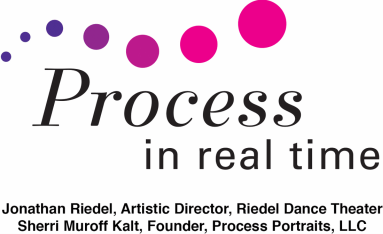|
Unfortunately, Jonathan and Maggie missed 6 rehearsals due to vacations, studio unavailability, children’s illnesses, and family medical procedures. During this period of time, Jonathan and Sherri processed many emotional issues and external dynamics that constitute the context within which Jonathan has been operating. These circumstances will inevitably shape the content of his work and his approach to the rehearsal process.
Jonathan and Sherri discuss the importance of artists who are full-time caregivers having a safe space to process their experiences (both physically and emotionally) and have a crucial creative outlet. These artists-turned-parents undergo tremendous tumult as they transition to what is truly a new world. As professional dancers, they are accustomed to pursuing technical virtuosity, working constantly, and committing themselves to projects that involve large amounts of time and, often, travel. Schedules are frequently changing and somewhat unpredictable. Maintaining this lifestyle is one thing if you are not married and don’t have a family; it’s quite another when you become a parent. How can you continue to create AND raise a family under the conditions in which you are used to operating? While this is a well-documented struggle for ALL working parents, it is especially tricky for artists. Jonathan and Sherri contemplate the necessity of creating a new paradigm with creative professionals. They imagine offering a safe, nurturing space in which artists can figure out how to navigate these new waters over time – and do it in the company of supportive colleagues who are all in the same boat. While the individual details differ, everyone is operating in a new context. They could collectively explore how to fulfill their creative needs while living under totally new circumstances that usually allow little time for such endeavors. Jonathan would like to create a supportive environment in Westchester where artists can think outside the box and address these challenges together. A paradigm shift is particularly appropriate for the more “seasoned” artist. Artistry is developed and refined over a long period of time; dancers and figure skaters, for example, tend to be viewed as “complete” dancers/skaters only when they have inculcated and mastered a high level of artistic expression. Jonathan and Sherri reason that dancers with families are likely to be at a stage in which they no longer maintain the demanding technical training regimens that characterized their early years in the field. Therefore, this stage would be the perfect time to concentrate on the development of their artistry. By approaching their art in a new way, dance professionals might discover that it is indeed possible to raise a family and maintain your artistic identity. Jonathan and Sherri will continue to explore the feasibility of this initiative. They will also consider documenting the development of this project as part of Process in Real Time.
In fact, now that he is operating in a new context as a parent, his choices will always be shaped by his new circumstances. He has no choice but to conduct his life differently. However, Jonathan is starting to look at these dynamics as presenting a great opportunity to travel different paths that derive from a truly authentic place. Moreover, while making meaning of these internal experiences, Jonathan and Sherri observed that Jonathan was conflating “failure” with his understandable disappointment and frustration over challenging contextual dynamics. For years, Jonathan wrestled with the difficulty of building a sufficient infrastructure for his company and struggled with numerous psychological and logistical impediments. Tough circumstances? Yes. A failure of the self? No.
0 Comments
Your comment will be posted after it is approved.
Leave a Reply. |
AuthorSherri Muroff Kalt, founder of Process Portraits, LLC and author of Portrait of an Artistic Journey: The Creative Process in Real Life Context, is a Phi Beta Kappa, magna cum laude graduate of Duke University with a B.A. in psychology. She began her career in marketing and sales in New York City with L’Oréal, Monet Jewelers, and Givenchy. READ MORE |

 RSS Feed
RSS Feed